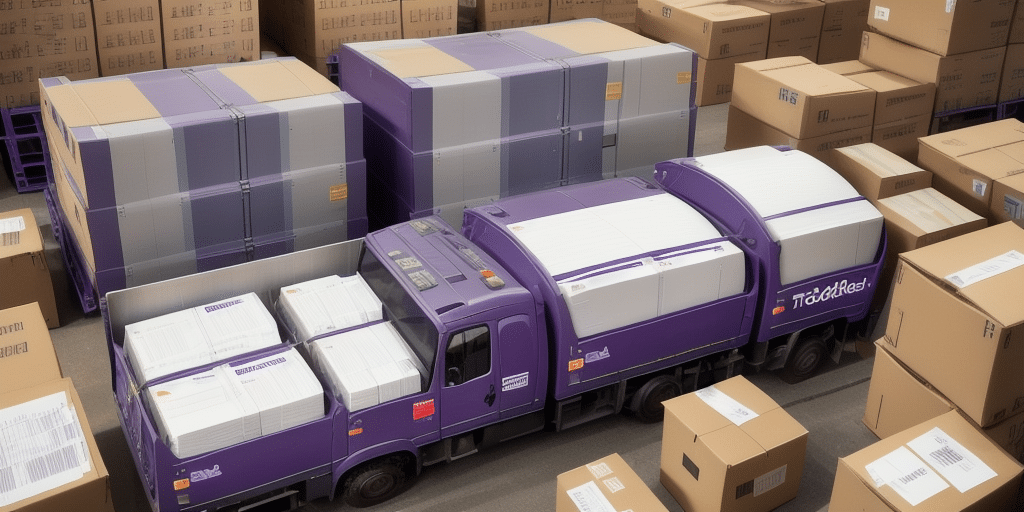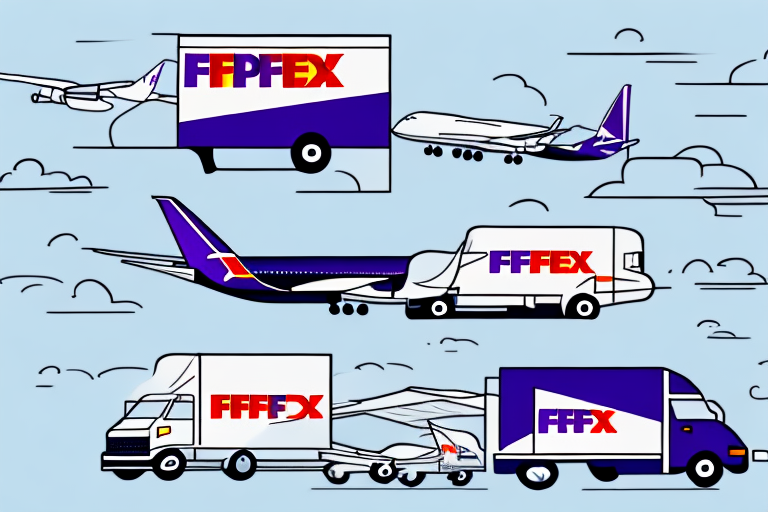Introduction to Label Stock Types in Shipping Logistics
In the competitive world of shipping logistics, ensuring that packages reach their intended destinations seamlessly is paramount. One critical aspect of this process is the correct usage of label stock types. The choice of label stock affects not only the durability and legibility of shipping labels but also the efficiency of the entire shipping operation.
Understanding Label Stock Types for FedEx Ship Manager Freight
Label Stock Type refers to the material used to print shipping address labels. In FedEx Ship Manager Freight, selecting the appropriate label stock type is essential for maintaining the integrity of the shipping process. Various label stock types offer different levels of durability, adhesive strength, and compatibility with shipping environments.
Common Label Stock Types
- Paper: The most cost-effective option, suitable for packages not exposed to extreme conditions.
- Vinyl: More durable than paper, resistant to moisture and temperature variations.
- Polyester: Highly durable, ideal for packages shipped overseas or under harsh environmental conditions.
Choosing the right label stock type ensures that labels remain attached and legible throughout transit, preventing delays or misdeliveries.
Common Issues with Label Stock Types
Invalid Adhesive Strength
Labels with insufficient adhesive may detach during transit, leading to package loss or delivery errors.
Improper Label Printing
Poor print quality can make addresses unreadable, causing delivery delays.
Software Incompatibility
Using outdated versions of FedEx Ship Manager Freight may not support newer label stock types or barcode standards.
Low-Quality Materials
Labels made from inferior materials can fade, smudge, or become illegible, compromising package tracking and delivery.
Identifying and Troubleshooting Invalid Label Stock Type Errors
When using FedEx Ship Manager Freight, users may encounter error messages indicating invalid label stock types. These errors can stem from selecting incompatible label materials or using unsupported software versions. To identify these issues:
- Review error messages provided by the FedEx Ship Manager Freight tool.
- Check the compatibility of the selected label stock type with the package's shipping requirements.
- Ensure that your software is up to date to support the latest label stock types.
Addressing these errors promptly helps maintain smooth shipping operations and prevents delays.
Troubleshooting Invalid Label Stock Type Errors
Update FedEx Ship Manager Freight Software
Ensure that you are using the latest version of FedEx Ship Manager Freight to access support for all available label stock types. You can download updates from the FedEx Ship Manager Freight website.
Select the Correct Label Stock Type
Choose a label stock type that aligns with the shipping environment and carrier requirements to ensure optimal performance.
Verify Barcode Compatibility
Ensure that barcodes are generated correctly and are compatible with the label material to facilitate accurate package tracking.
Double-Check Shipping Information
Verify all entered shipping details for accuracy to avoid errors that may flag labels as invalid.
Consult FedEx Customer Support
If troubleshooting steps do not resolve the issue, contacting FedEx customer service can provide additional assistance and guidance.
Best Practices for Selecting and Using Label Stock Types
- Select Suitable Label Stock: Choose label materials based on the package's size, weight, and shipping conditions.
- Regular Software Updates: Keep FedEx Ship Manager Freight updated to leverage the latest features and label stock support.
- Ensure Printer Compatibility: Use printers that are compatible with the chosen label stock type to ensure high-quality label printing.
- Test Labels Before Bulk Printing: Conduct test prints to confirm label durability and legibility before mass production.
Implementing these best practices enhances the reliability of shipping operations and reduces the likelihood of label-related issues.
The Importance of Correct Label Stock Type for Successful Shipping
Using the correct label stock type is crucial for the successful and timely delivery of packages. Proper label adhesion and durability prevent labels from detaching or becoming illegible during transit, ensuring that packages reach their destinations without complications.
Incorrect label stock types can lead to:
- Package misdelivery or loss
- Delayed shipments due to label reprinting
- Increased operational costs from additional handling and customer dissatisfaction
Choosing the right label stock type aligns with best shipping practices and promotes customer trust and satisfaction.
Exploring Different Types of Shipping Labels and Their Uses
Beyond label stock types, various shipping labels serve different purposes within the logistics process. Understanding these can further optimize shipping operations.
Address Labels
Contain the destination and sender information, essential for package delivery.
Barcode Labels
Facilitate package tracking and inventory management through scannable barcodes.
Fragile Labels
Indicate that the package contains fragile items, prompting careful handling during transit.
Custom Labels
Personalized labels can enhance brand visibility and provide additional information relevant to the shipment.
Leveraging the appropriate type of shipping label, in conjunction with the right label stock, ensures a streamlined and effective shipping process.
Conclusion
Proper selection and usage of label stock types are foundational to efficient shipping logistics. By understanding the different label materials, recognizing common issues, and adhering to best practices, shippers can ensure their packages are delivered accurately and on time. Investing time in optimizing label stock usage not only enhances operational efficiency but also contributes to overall customer satisfaction.





















